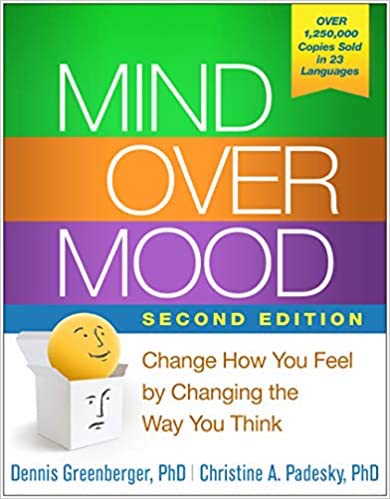If you want to make your recovery stick, you must be able to take constructive criticism for what it is and grow from it
By Patrick McElwaine, Psy.D., LPC
For those in active addiction or recovery, hypersensitivity to constructive criticism can produce painful thoughts.
The book Addictive Thinking: Understand Self-Deception (second edition), by Abraham Twerski, discusses hypersensitivity. Twerski compares hypersensitivity to a bad sunburn. Just as people who are sunburned have a much more heightened reaction to touch, those struggling in addiction and recovery might be hypersensitive to any sort of criticism or feedback. If you’re struggling with hypersensitivity, you may well internalize your negative thoughts and not even realize you’re overreacting to what others say. Those thoughts might include, I’m not good enough or No one cares for me or No one understands. Such reactions might exacerbate your feelings of anxiety and depression.
I wanted to be perfect and not make mistakes, which, of course, is impossible. When someone responded negatively to me or I made a mistake, it spurred negative thoughts.
I read Twerski’s book’s section on hypersensitivity upon my therapist’s recommendation, and it resonated deeply with me. I had always tried to mask my sensitivity by saying, “I don’t care. Nothing bothers me. I’m okay.” The truth was, I wanted people to like me! I wanted to be perfect and not make mistakes, which, of course, is impossible. When someone responded negatively to me or I made a mistake, it spurred negative thoughts. I’d ask myself, What is it about me that’s so unlikable? Is this what everyone sees?
When these kinds of thoughts are present, you might overgeneralize them, with dire consequences. They might impact your daily life, the way you see the world and people around you, and your future. During my active addiction, it was so hard for me to understand that this negative type of thinking was one of the reasons I used substances.
Early in my recovery, people would ask questions about my use. I would answer, “I just like it—it feels good.” It wasn’t easy for me to accept that I needed to stop using. I had to put some real work into my therapy and growth to reach that conclusion. If you are self-aware and realize you’re a sensitive person, you might already have some insights into how to keep negative thoughts from dominating your life.
Let me give you a few examples of what being hypersensitive can look like. If you connect with any, hopefully my recommendations will help.
Example One
When I first started recovery on June 23, 2005, I struggled, suffering numerous relapses until Feb. 12, 2009. During a brief sober time in 2006, I went to the store and came back later than usual. My wife asked me what took so long. I felt that she was questioning me because she suspected I was using alcohol or pills. I became extremely defensive and angry. I was sober at the time, so how could she question me at all?
Constructive critiques aren’t given to put you down; they’re meant to help you improve. View them through the lens of this little slogan: “Progress, Not Perfection.”
Time went by, and I hit rock-bottom more than once. Later I began working my treatment and attending 12-step meetings regularly; I was being active in my recovery, even if I didn’t want to be. The same situation happened again—my wife questioned me about taking longer than usual at the store—but this time I responded more calmly, assuring her that nothing out of the ordinary had occurred. Later that night, we discussed how I seemed more engaged, interactive and open to recovery. We recalled the similar situation from a few years earlier and agreed that my reaction in this instance showed I was heading in the right direction with my recovery.
Example Two
Think about times you’ve received compliments from coworkers on a project or presentation you did—except from one person who offers a constructive critique. Do you dwell more on the one negative interaction than the numerous affirming comments? Well, don’t do that. Constructive critiques aren’t given to put you down; they’re meant to help you improve. View them through the lens of this little slogan: “Progress, Not Perfection.” Accepting critical feedback helps us grow, especially if we’re in recovery.
Example Three
Have you ever been at a meeting where another participant tells you you’re not working your treatment the way you should? The person likely said it with the intention of helping you. Don’t dismiss the comment out of defensiveness or respond by stopping attending meetings. Take it for what it is: constructive criticism to hasten your recovery journey.
Advice for Dealing with Hypersensitivity
Therapy: This can help you gain or strengthen the tools needed to direct negative thoughts related to criticism and critique from others. For instance, cognitive behavior therapy (CBT) has numerous interventions and activities for breaking self-defeating thinking patterns.

Bibliotherapy: Numerous books have been published that provide assistance in shaping healthier behaviors. In addition to Twerski’s book, I suggest Mind over Mood: Change How You Feel by Changing the Way You Think, by Dennis Greenberger and Christine Padesky, and Get Out of Your Mind and into Your Life, by Steven Hayes with Spencer Smith.
Progress, Not Perfection: I mentioned this earlier, and I’m bringing it up again because I can’t stress enough how important it is to understand that mistakes happen. We can’t please everyone, and critiques can have a positive effect on your life if you’re open to them. After working on this part of my life for many years, I now seek out constructive criticism and try to apply it to my life going forward. I understand that I’ll never make everyone happy. This realization has improved the quality of my relationships and allowed me to grow as a person. The same thing can happen to you if you let it.
Patrick McElwaine, Psy.D., LPC, is known as “Dr. Mac” to his clients, students and colleagues. He has his own counseling practice, teaches counseling psychology at Holy Family University in Pennsylvania, is a faculty member at the Beck Institute, and serves on the Bucks County National Alliance on Mental Illness (NAMI) board of trustees. His column “Dear Recovery” publishes regularly on TreatmentMagazine.com.
Top photo: Tachina Lee














